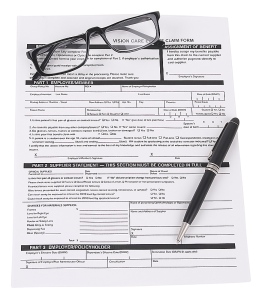Posted by Bill Gray on July 20, 2010
A credit report is basically a report card of how a particular person pays their bills. Why are monthly rent payments not reflected as a trade line on the credit report? I as  well as many [tweetmeme source=”your_twitter_name” only_single=false http://www.URL.com%5Dothers, have felt for years that rent payments should be included on the credit report, just as mortgage payments are. If a tenant pays the rent on time every month, they should be awarded credit for paying their obligations. On the other hand, a tenant who does not pay their rent, or pays late, should be dinged on their credit, as they are if they pay a credit card late or skip the payment.
well as many [tweetmeme source=”your_twitter_name” only_single=false http://www.URL.com%5Dothers, have felt for years that rent payments should be included on the credit report, just as mortgage payments are. If a tenant pays the rent on time every month, they should be awarded credit for paying their obligations. On the other hand, a tenant who does not pay their rent, or pays late, should be dinged on their credit, as they are if they pay a credit card late or skip the payment.
This month Experian announced that it has acquired RentBureau of Atlanta, Georgia. This acquisition may finally make it possible for rent payments to be accurately reflected on the credit report. RentBureau is the nation’s largest consumer-reporting agency specific to the multi-family industry. RentBureau provides landlords and property managers a way to report rent payment history. Click here for the press release
I have not learned the details of what Experian’s plans are with this acquisition, but I assume the result will be that landlords will finally have the ability to report rent payments directly to Experian, just as a mortgage company reports payments.
This could be a huge leap forward for both landlords and tenants. By reviewing a prospect’s trade line reflecting rent payments, a landlord will immediately know if the prospect has paid his/her rent on time. Conversely, tenants will finally receive credit for timely rent payments. Using this information to screen tenants could greatly decrease the possibility of a tenant skipping or being evicted because the rent was not paid.
I am curious how my reader feel about this new development in screening tenants. Please take two minutes and complete the quick survey. Include your email address and I will send you my free E-Book “How to Detect Social Security Number Fraud.”
Click here to complete the short survey
Bill Gray
Bill@thelandlorddoctor.com
www.thelandlorddoctor.com
Tenant Debt & Screening Forum www.theinformedlandlord.com
Copyright 2010 – Click here to reprint/re-post

Posted in Credit Bureau Reporting, Credit Report, Evicted, Landlord, Property Management, Tenant Screening | Tagged: Apartment, balance owed, Bills, collect, Credit Report, Debt, Debtor, delinquant, delinquent, Eviction, Experian, Landlord, Money, Move out, Moves out, owes, past, Pay, Property Manager, Rent, Rental, Resident, skip, Tenant, tenant's | Leave a Comment »
Posted by Bill Gray on July 19, 2010
Until recently I had no idea the prices of tenant screening reports varied so much between different parts of the country. Please take 1 minute and complete this quickie survey. In [tweetmeme source=”your_twitter_name” only_single=false http://www.URL.com%5Dappreciation I will send you my E-Book “Identifying Social Security Number Fraud”. Please include your email address.
Click here to participate in my survey: Tenant Screening Survey
Thank you,
Bill Gray
Bill@thelandlorddoctor.com
www.thelandlorddoctor.com
Tenant Debt & Screening Forum www.theinformedlandlord.com
Copyright 2010 – Click here to reprint/re-post

Posted in Uncategorized | Leave a Comment »
Posted by Bill Gray on April 17, 2010
Recently I was interviewed for an article for Lowes For Pros. The article, “How to Successfully Perform Background Checks on Potential Tenants” does a good job of covering the basics of screening potential tenants. [tweetmeme source=”your_twitter_name”]
Here is a link to the article: Lowes For Pros
Email me your tenant screening and tenant debt questions.
Bill Gray
Bill@thelandlorddoctor.com
www.thelandlorddoctor.com
Tenant Debt & Screening Forum www.theinformedlandlord.com
Copyright 2010 – Click here to reprint/re-post

Posted in 1 | Leave a Comment »
Posted by Bill Gray on March 9, 2010
Recently I was asked to conduct a survey of my blog readers of the reasons and or excuses tenants [tweetmeme source=”your_twitter_name” only_single=false http://www.URL.com%5Dgive for not paying their rent. 
I have heard countless times from landlords who allowed tenants to pay rent late, only to be burned in the end when the tenant either skips or must be evicted. This situation usually ends with the landlord being owed several thousands of dollars. The economy of the last couple years has increased both the percentage of tenants who leave owing a balance, and the average size of the balance owed.
Here are the top ten results from over four hundred responses:
1. Got laid off, fired or my hours got cut.
2. The bank screwed up my account.
3. My paycheck is late.
4. May car broke and it cost a lot to get it fixed.
5. I mailed it today.
6. I have not had time to get a money order.
7. I spent too much on Christmas/birthday presents and don’t have all the rent.
8. My roommate has not given me their half of the rent.
9. Spent the rent on medical bills.
10. My child support or government check is late.
The information contained in this article is provided for informational purposes only, and should not be construed to be legal advice. Consult a local landlord-tenant attorney to discuss your specific situation.
Email me your tenant screening and tenant debt questions.
Bill Gray
Bill@thelandlorddoctor.com
www.thelandlorddoctor.com
Tenant Debt & Screening Forum www.theinformedlandlord.com
Copyright 2010 – Click here to reprint/re-post

Posted in Evicted, Landlord, Landlord Tenant, Property Management, Tenant Debt Collections | Tagged: Apartment, balance owed, Bills, collect, collection, delinquent, evict, Evicted, Eviction, Landlord, Money, Move out, Moves out, owes, Paid, past, Pay, Property Manager, Rent, Resident, skip, Skipped, Tenant | 2 Comments »
Posted by Bill Gray on February 22, 2010
[tweetmeme source=”your_twitter_name” only_single=false http://www.URL.com%5D

A Landlord's Worst Nightmare
Imagine being forced to write a check to a previous tenant who still owes you money. This is a very real possibility if you fail to comply with the law after the tenant moves out. With the amounts and occurrences of tenant debt rising, having to pay a previous tenant who still owes you money only adds insult to injury.
In most states, landlords and property managers are required to notify their tenant if they do not intend to refund the tenants deposit after they move out. States vary in the required timeframe and method of notification, but most do require it. This notification is referred to in various terms such as SODA (Statement of Deposit Account), Deposit Disposition, Final Account Statement, etc. Some states require the notice be sent via certified mail, while others accept First Class mail notification. I advise landlords to mail this notice via Certified Mail, whether the state requires it or not. Sending it Certified Mail provides you with a receipt proving you mailed it and complied with the law.
Failing to notify your previous tenant of how you intend to apply the deposit he paid you may end up costing yourself even more money! Regardless of the unpaid rent, damages, eviction legal fees, etc., if you fail to notify the tenant as required by law in most states, the tenant can demand his deposit back.
Let’s say the tenant paid a $1,000 deposit on a twelve-month lease. Six months into the lease, the tenant skipped, leaving your rental trashed and owing you a month’s rent. Once you calculate your losses, you determine that the tenant owes you $3,000. After subtracting the $1,000 deposit, you are in the red $2,000.
If in this scenario you do not notify the tenant of how you intend to apply the $1,000 deposit toward the $3,000 loss, the tenant in many cases could demand his $1,000 back, regardless of what he owes you. Yes, he may have to sue you to get the deposit back, but if you have violated the law, he most likely will win.
So, take a look at what your failure to comply with the law may cost you in addition to a big headache. Immediately, you have cost yourself the $1,000 deposit plus any legal fees you paid to defend yourself in court. A quick Google search will give you further proof, revealing a number of class action suits against landlords and property management companies who failed to notify past tenants of how the deposit was applied.
In many cases, you might not have a forwarding address to mail the notice to. Your only option is to mail the notice to the last known address, which is the address of your rental. Half or more of these notices will be returned to you as undeliverable or having a wrong address. File the returned mail with the tenant’s file and save it. You may need the returned mail as proof that you did attempt to send the notification.
Comply with your state’s deposit notification law. Doing so may save you money.
The information contained in this article is provided for informational purposes only, and should not be construed to be legal advice. Consult a local landlord-tenant attorney to discuss your specific situation.
Email me your tenant screening and tenant debt questions.
Bill Gray
Bill@thelandlorddoctor.com
www.thelandlorddoctor.com
Tenant Debt & Screening Forum www.theinformedlandlord.com
Copyright 2010 – Click here to reprint/re-post

Posted in 1, Evicted, Landlord, Landlord Tenant, Landlord Tenant Law, Property Management | Tagged: Apartment, Attorney, balance owed, Bills, collect, Court, Damages, Debt, Debtor, delinquent, evict, Eviction, Ex-Tenant, Landlord, lawyer, Legal fees, Money, Move out, Moves out, owes, Paid, Pay, Previous Tenant, Property Manager, Rent, Rental, Resident, skip, Skipped, Tenant, tenant's | 2 Comments »
Posted by Bill Gray on February 11, 2010
There are many reasons why you shouldn’t allow a tenant to pay rent late, but the legal implications must always be at the top of the list.[tweetmeme source=”your_twitter_name” only_single=false http://www.URL.com%5D Unfortunately, by being the nice guy, or gal, and accepting late rent payments, you might be establishing grounds for a Fair Housing lawsuit. Last year, I sat in on a seminar given by Milwaukee landlord-tenant attorney Tristan Pettit, where I learned that case law has been established that says you cannot accept late payments from one tenant and not accept late payments from another.
accepting late rent payments, you might be establishing grounds for a Fair Housing lawsuit. Last year, I sat in on a seminar given by Milwaukee landlord-tenant attorney Tristan Pettit, where I learned that case law has been established that says you cannot accept late payments from one tenant and not accept late payments from another.
The Fair Housing Act makes it illegal to “set different terms, conditions, or privileges for sale or rental.” By accepting late payments from one tenant and not another, you may be violating the law.
Any trip to court can be precarious and expensive in terms of time and money. You can never be certain of what the outcome of a court case or dispute is going to be. Any good attorney will tell you that avoiding court altogether is always preferred.
To compound the issue of being sued for a Fair Housing violation, consider what you are doing to the terms of your lease by habitually accepting late rent. Let’s say your lease requires the rent to be paid by the third of the month. But for the last six months, you have accepted the rent on the fifteenth. Suddenly, in the seventh month you put your foot down and demand the rent be paid by the third, but the tenant ignores you and continues to pay the rent on the fifteenth. In the eight month, you file for eviction when the tenant again is late with his or her rent.
If the tenant were to hire a savvy attorney to represent them, the attorney could easily argue that you had amended the terms of the lease by accepting the rent late the first six months of the lease. Not only could this force you to continue accepting the rent, it could cause a counter suit.
Enforce the terms of the lease and require that the rent be paid on time—from each and every tenant. Doing so may keep you out of court.
The information contained in this article is provided for informational purposes only, and should not be construed to be legal advice. Consult a local landlord-tenant attorney to discuss your specific situation.
Email me your tenant screening and tenant debt questions.
Bill Gray
www.thelandlorddoctor.com
Bill@thelandlorddoctor.com
Tenant Debt & Screening Forum www.theinformedlandlord.com
Copyright 2010 – Click here to reprint/re-post

Posted in 1, Landlord Tenant Law, Property Management | Tagged: Apartment, Attorney, balance owed, Bills, collect, Court, delinquent, Eviction, Landlord, late rent, Law, lawyer, Legal fees, Money, owes, Paid, Pay, Property Manager, Rent, rent payment, Rental, Resident, sue, Tenant, tenant's | 1 Comment »
Posted by Bill Gray on January 31, 2010
[tweetmeme source=”your_twitter_name” only_single=false http://www.URL.com%5DThe way in which you explain, or don’t explain pet deposits can cost you profit. If landlords could spend just one day as a professional collector attempting to collect tenant debt, one of the top objections they would hear from previous tenants is about pets and pet deposits.
of the top objections they would hear from previous tenants is about pets and pet deposits.
“The urine spots on the carpet are covered by my pet deposit” is one example of a tenant either intentionally or unintentionally misunderstanding the pet deposit. Many pet deposits are non-refundable. If this is not fully explained at lease signing, most likely the tenant will believe that the pet deposit is no different than the standard deposit he placed on the rental unit.
Most tenants understand that when they pay a rental deposit any damage they cause to the unit will be deducted at move out from their deposit. If the non-refundable pet deposit is not fully explained, the tenant considers it the same as the rental deposit.
So when Fido has several accidents and soils the carpet, the tenant often will guesstimate that his pet deposit will cover the cost of cleaning it. In reality the cleaning cost is deducted from his refundable deposit. Imagine the difficulty a professional collector has on the telephone trying to explain the difference between a non-refundable pet deposit and refundable rental deposit.
This is not to say that a certain percentage of previous tenants have a convenient memory when it comes to the terms of the lease. But I do believe that a good share of landlords do not take the time to fully explain the terms. An initialed and signed pet addendum will go a long way in settling disputes after move out.
Use a clear, understandable pet addendum and explain it clearly before the new tenant initials and signs it. Doing so will save you profit by reducing tenant debt when the tenant moves out.
Email me your tenant screening and tenant debt questions.
Bill Gray
www.thelandlorddoctor.com
Forum www.theinformedlandlord.com
Copyright 2010 – Click here to reprint/re-post

Posted in Landlord, Landlord Tenant, Landlord Tenant Law, Property Management, Tenant Debt Collections | Tagged: Apartment, balance owed, Bills, collect, collection, Collection Agency, Court, credit, Credit Report, Damages, Debt, Debtor, delinquent, evict, Evicted, Eviction, Landlord, lawyer, Legal fees, Money, Move out, Moves out, owes, Paid, Pay, Previous Tenant, Property Manager, Rent, Rental, Resident, skip, Skipped, Tenant, tenant's | 8 Comments »
Posted by Bill Gray on January 19, 2010
[tweetmeme source=”your_twitter_name” only_single=false http://www.URL.com%5DFinancially, many landlords are shooting themselves in the foot. The application process is normally the first place they do so. Incomplete and inaccurate rental applications cost landlords  much needed profit. Nearly 50% of the applications I review are either missing information or are illegible.
much needed profit. Nearly 50% of the applications I review are either missing information or are illegible.
Sloppy applications speak negatively about the prospects filling them out, but they say even more about the landlord or property manager who accepts them. When a landlord accepts an incomplete or illegible application, he or she is telling the applicant, “I don’t care.” Think about what seeds an “I don’t care” attitude plants in the applicant’s head.
If the landlord is not serious about the application and the information which may or may not be in it, what else is he lax with? If he is not serious about the application process, is he serious about the rent being due on the 1st of the month? If the landlord is unprofessional during the application process, is he serious about the prospective tenant taking good care of his rental unit?
The application has several important purposes, all of which rely on it being completed legibly.
Much of the information requested in an application is needed to sufficiently screen the tenant. When I see a sloppy application, my first thought is that the landlord is cutting corners in the screening of potential tenants. By the way, the reason I am called upon to look at the application and file is because the landlord is owed money by the very applicant who submitted a sloppy application. Now, he is turning to me for advice on collecting it. I firmly believe there is a direct correlation between the application/screening process and tenants who leave the property owing an average of $3,500.
The rental application should contain a space for at least one emergency contact. Completing this section should always be a requirement. Nobody wants to envision a situation where you need to contact someone in case of an emergency, but if you do, you will have the contact information to do so.
The property manager who is eager to rent seldom considers the last purpose of the rental application. The information on the application is invaluable in the collection process when the tenant is either evicted or abandons the property and the lease. In that case, an incomplete or illegible application makes collecting the debt difficult, if not impossible.
Require that your applicants complete the application in its entirety and legibly. Doing so will decrease debt and increase profit.
Also see my article, “Don’t Miss an Important Component to Screening New Tenants!
Email me your tenant screening or tenant debt questions.
Bill Gray
Bill@thelandlorddoctor.com
www.thelandlorddoctor.com
Copyright 2010 – Click here to reprint/re-post

Posted in 1, Landlord, Landlord Tenant, Landlord Tenant Law, Property Management, Tenant Debt Collections | Tagged: Apartment, balance owed, collect, collection, credit, Debt, delinquant, evict, Evicted, Landlord, Legal fees, Money, Move out, Moves out, owes, Property Manager, Rent, Resident, Tenant, tenant's | 5 Comments »
Posted by Bill Gray on January 6, 2010
[tweetmeme source=”your_twitter_name” only_single=false http://www.URL.com%5DOur country’s current economy has had a severe impact on the real estate and housing market. The nightly news covers the blight of communities impacted by a high number of foreclosures and the emotional stories of people who are facing such a crisis. Unemployment, lack of medical insurance, and the credit crunch caused by sub-prime mortgages add to the crisis, making the current real estate market grim. As a result, the downturn of the economy has also significantly affected landlords and property managers, presenting them with an unprecedented number of challenges.
and the emotional stories of people who are facing such a crisis. Unemployment, lack of medical insurance, and the credit crunch caused by sub-prime mortgages add to the crisis, making the current real estate market grim. As a result, the downturn of the economy has also significantly affected landlords and property managers, presenting them with an unprecedented number of challenges.
As ‘The Landlord Doctor,’ I’ve reviewed over 70,000 cases of tenant debt, encompassing more than $200 million dollars. Every day, I witness the negative impact of our economy on landlords and property managers across the country who seek my advice and instruction in reducing or collecting tenant debt. As I sit on boards of professional associations and talk to the people who attend my conferences, I’m astounded by the increased spark of questions and concerns raised by landlords because of the economy.
As more people are displaced from their homes, those questions and concerns will continue to rise. The need for extensive tenant screeningcollect tenant debt will increase as people become victims of the economy, and the need to will be a pressing issue for landlords. There has already been a tremendous increase in landlords seeking my assistance in these areas, which is why I thought I’d share two common questions which have been posed in the past few months.
“My tenant is three months behind on rent. He’s always been a good tenant, but has lost his job. What should I do?”
First, like you, I sympathize with your tenant’s situation. However, three months is a long time to receive free housing. Remember, while you’re trying to be a nice guy, being a landlord is still a business. My experience shows that once a tenant is allowed to become two months in arrears on their rent, the odds are slim that they will become and stay current. In fact, these tenants usually owe much more than two months rent when they leave. When you first become aware of a change in their financial situation, make it clear that while you empathize with their dilemma, you cannot afford to allow the rent to go unpaid. Be straightforward from the onset, notifying the tenant that carrying a balance due on rent is not an option. Additionally, a good attorney will advise that past case law has indicated that routinely allowing tenants to pay late sets a precedence which could force you to continue accepting late rent payments. Even worse, allowing one tenant to pay late, while refusing other tenants the same latitude, may cause a Fair Housing lawsuit, as all tenants must be treated equally.
“My tenant skipped out on  their lease and damaged my rental. How can I collect what they owe?'”
their lease and damaged my rental. How can I collect what they owe?'”
This situation can be more complex. While it’s certainly something no landlord wants to encounter, it happens. Though this situation is more common during tough times, efficient property managers have learned to minimize it by applying good business practices from the time the prospect walks through the door, until he or she moves out of your rental. If it happens, I recommend that you take pictures and document all damages. Follow your state law regarding proper notification to the tenant about the application of their deposit. Insofar as collecting the debt, you have three options: 1) sue the debtor in small claims court; 2) hire a collection agency (only an agency that specializes in tenant debt), or report the debt to all three credit bureaus and attempt to collect it yourself.
While I know that each of those situations has its own unique set of circumstances, a common theme prevails—an increasing number of landlords and property managers are experiencing a rise in cases of tenant debt. These new challenges should make us more aware of the need for prevention, education and remedies in screening and the collection of tenant debt.
Use this difficult time to hone your skills as a property manager and your focus on the details. Improve your business practices by making small changes and improvements. As a result, you’ll decrease incidences of tenant debt and increase your profits. These are critical areas landlords must address to survive in any economy.
Email me your tenant screening and tenant debt questions.
Bill Gray
www.thelandlorddoctor.com
Bill@thelandlorddoctor.com
Copyright 2010 – Click here to reprint/re-post

Posted in Landlord, Landlord Tenant, Landlord Tenant Law, Property Management, Tenant Debt Collections | Tagged: Apartment, balance owed, Bills, collection, Collection Agency, Court, credit, Credit Report, Debt, Debtor, delinquent, economy, Equifax, Evicted, Eviction, Landlord, Money, Move out, Moves out, owes, Pay, Property Manager, recession, Rent, Rental, Resident, skip, unemployment | Leave a Comment »
Posted by Bill Gray on January 4, 2010
[tweetmeme source=”your_twitter_name” only_single=false http://www.URL.com%5DDecember 30th USA Today published an article titled “Apartment renters win as vacancy rate climbs”, when he wrote the article author Paul Davidson asked me what effect concessions are having on the tenant delinquency rate. My quote is included in his article. The bottom line is that concessions may help rent empty units, but tenant debt continues to rise.
Link to Article: “Apartment renters win as vacancy rate climbs”
Bill Gray
Bill@thelandlorddoctor.com
www.thelandlorddoctor.com
Tenant Debt & Screening Forum www.theinformedlandlord.com

Posted in Evicted, Landlord, Landlord Tenant, Property Management, Tenant Debt Collections, Tenant Screening | Tagged: Apartment, balance owed, Bills, collect, collection, Collection Agency, Court, credit, Credit Report, Damages, Debt, Debtor, delinquant, delinquent, Equifax, evict, Evicted, Eviction, Landlord, lawyer, Money, Move out, Moves out, owes, Previous Tenant, Property Manager, Rent, Rental, Resident, skip, Tenant, tenant's | 1 Comment »
 well as many [tweetmeme source=”your_twitter_name” only_single=false http://www.URL.com%5Dothers, have felt for years that rent payments should be included on the credit report, just as mortgage payments are. If a tenant pays the rent on time every month, they should be awarded credit for paying their obligations. On the other hand, a tenant who does not pay their rent, or pays late, should be dinged on their credit, as they are if they pay a credit card late or skip the payment.
well as many [tweetmeme source=”your_twitter_name” only_single=false http://www.URL.com%5Dothers, have felt for years that rent payments should be included on the credit report, just as mortgage payments are. If a tenant pays the rent on time every month, they should be awarded credit for paying their obligations. On the other hand, a tenant who does not pay their rent, or pays late, should be dinged on their credit, as they are if they pay a credit card late or skip the payment.









